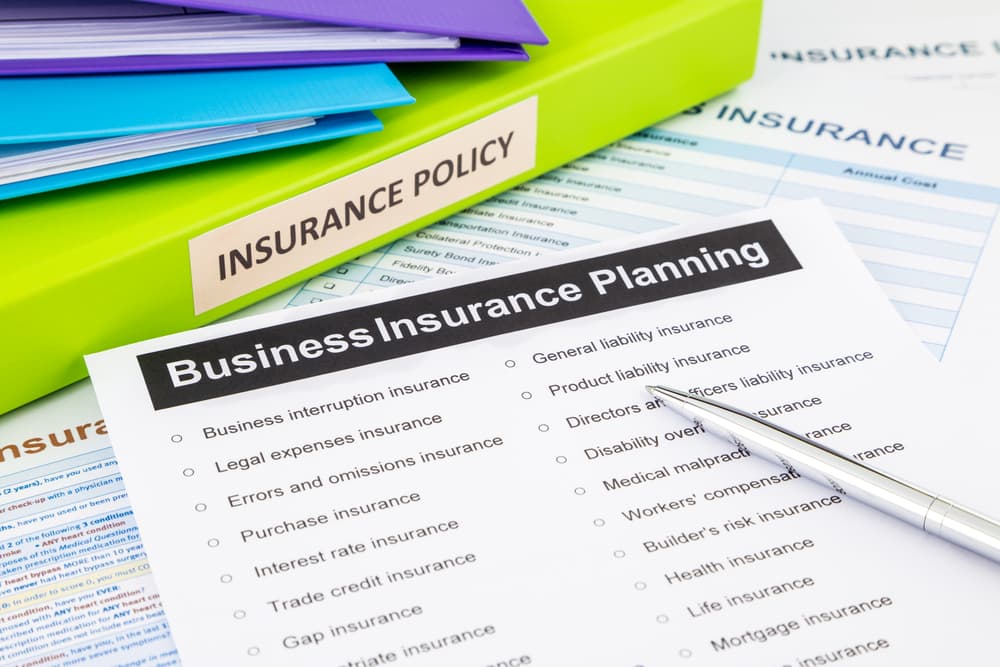Business Insurance Near Me: Finding the right insurance is crucial for any business, regardless of size or industry. Securing adequate coverage protects your assets, your employees, and your financial future from unforeseen events. This guide explores the landscape of local business insurance, helping you navigate the process of finding the best policy to meet your specific needs and budget.
From understanding the various types of insurance available—general liability, commercial auto, professional liability, and workers’ compensation—to evaluating providers and comparing quotes, we provide a comprehensive overview. We’ll also examine key considerations, such as policy terms, claims processes, and the potential consequences of inadequate coverage. By the end, you’ll be well-equipped to make informed decisions to safeguard your business.
Understanding Local Business Insurance Needs: Business Insurance Near Me
Securing the right business insurance is crucial for mitigating financial risks and ensuring operational continuity. This section examines the diverse insurance needs of businesses across various sectors, considering size and location to provide a comprehensive overview.
Common Insurance Types by Sector
The types of insurance most sought after vary significantly depending on the industry. For example, restaurants commonly prioritize general liability and property insurance to cover accidents and damage, while technology firms might focus on cyber liability and professional liability (errors and omissions) insurance. Construction companies, on the other hand, require robust workers’ compensation and commercial auto insurance due to the inherent risks of their operations.
Retail businesses often prioritize property insurance, business interruption insurance, and employee theft coverage.
Factors Influencing Insurance Provider Choice
Several factors influence the selection of an insurance provider. Small businesses often prioritize affordability and personalized service, sometimes opting for independent agents who can offer multiple policy options. Medium-sized businesses may consider broader coverage options and bundled packages, while larger corporations often negotiate directly with insurance carriers for customized, comprehensive policies and potentially lower premiums due to their risk profiles.
Coverage Amounts and Premium Costs
Coverage amounts and premium costs vary significantly based on factors like the business’s size, location, industry, risk profile, and the chosen policy limits. For instance, a small retail store in a low-crime area might pay considerably less for general liability insurance than a large manufacturing plant in a high-risk industrial zone. Premium costs are also influenced by the deductible chosen; a higher deductible typically results in a lower premium, but the business bears more risk in the event of a claim.
Comparison of Business Insurance Plans
| Plan Type | Coverage | Premium (Example Range) | Benefits |
|---|---|---|---|
| General Liability | Bodily injury, property damage | $500 – $2,000 annually | Protects against lawsuits from customer injuries or property damage |
| Property Insurance | Building, contents, equipment | $1,000 – $10,000 annually | Covers damage or loss from fire, theft, or natural disasters |
| Workers’ Compensation | Medical expenses, lost wages for injured employees | Varies based on payroll and risk | Protects against lawsuits from workplace injuries |
| Commercial Auto | Liability and physical damage to company vehicles | $500 – $3,000 annually | Covers accidents involving company vehicles |
Finding and Evaluating Local Insurance Providers
Locating and evaluating suitable insurance providers requires a systematic approach. This section details the process of identifying reputable providers, verifying their legitimacy, and evaluating quotes effectively.
Locating Reputable Providers, Business Insurance Near Me
Start by searching online directories, seeking recommendations from other businesses, and contacting your local chamber of commerce. Attend industry events and networking opportunities to connect with insurance professionals. Check online reviews and ratings to gauge the reputation of potential providers. Consider geographic proximity for easier communication and potential on-site visits.
Finding the right Business Insurance Near Me is crucial for protecting your assets. Many business owners rely on quick communication, often using video calls; however, compatibility issues can arise, prompting the question, “Can You Facetime On Android?” Can You Facetime On Android Understanding these technological limitations helps ensure smooth client communication, a key factor in successful business operations, further highlighting the importance of comprehensive Business Insurance Near Me.
Verifying Provider Legitimacy and Financial Stability
Verify the insurance provider’s license and registration with the relevant state regulatory authorities. Check their financial ratings from agencies like A.M. Best, Standard & Poor’s, or Moody’s to assess their financial stability. Look for evidence of professional affiliations and memberships in industry organizations.
Evaluating Insurance Quotes
Don’t solely focus on price. Carefully review policy details, coverage limits, deductibles, and exclusions. Compare the services offered, such as claims handling processes, customer support, and accessibility of agents. Consider the provider’s reputation for prompt and fair claim settlements.
Independent Agents vs. Direct Writers
Independent agents represent multiple insurance companies, offering a broader range of options and potentially more competitive pricing. Direct writers sell insurance for a single company, often providing streamlined processes and potentially lower overhead costs. The best choice depends on individual needs and preferences.
Key Considerations for Choosing a Policy
Understanding policy terms, the claims process, and the implications of inadequate coverage are vital for making informed decisions. This section emphasizes the critical factors to consider before committing to a policy.
Understanding Policy Terms, Conditions, and Exclusions
Read the policy document thoroughly, paying close attention to definitions, coverage limits, deductibles, and exclusions. Clarify any ambiguities with the provider before signing the contract. Ensure the policy adequately addresses your business’s specific risks and needs.
The Claims Process and Claim Settlement
Understand the steps involved in filing a claim, including required documentation and timelines. Inquire about the provider’s claims handling process and reputation for fair and timely settlements. Review past claim settlement experiences to assess their efficiency and customer service.
Implications of Inadequate Coverage
Inadequate coverage can leave your business vulnerable to significant financial losses in the event of an accident, lawsuit, or natural disaster. Underinsurance can lead to bankruptcy or severely impact your business’s financial stability. It is crucial to accurately assess your risk profile and secure sufficient coverage.
Questions to Ask Potential Providers
- What types of coverage do you offer?
- What are your claims handling procedures?
- What is your financial stability rating?
- What are your customer service policies?
- Can you provide references from other businesses?
Specific Insurance Types and Their Relevance
This section details the coverage and importance of several key insurance types for local businesses.
General Liability Insurance
General liability insurance protects your business from financial losses due to third-party bodily injury or property damage. This is essential for all businesses, as accidents can occur unexpectedly, leading to costly lawsuits. It covers medical expenses, legal fees, and potential settlements.
Commercial Auto Insurance

Source: prontoinsurance.com
If your business uses vehicles, commercial auto insurance is crucial. It covers liability for accidents involving company vehicles, as well as damage to the vehicles themselves. It offers protection against lawsuits and repair costs, preventing significant financial burdens.
Professional Liability Insurance (Errors and Omissions)
Professional liability insurance, also known as errors and omissions (E&O) insurance, protects professionals from claims of negligence or mistakes in their services. This is vital for consultants, lawyers, doctors, and other professionals who could face lawsuits due to errors or omissions in their work.
Workers’ Compensation Insurance
- Covers medical expenses for employees injured on the job.
- Provides wage replacement for injured employees unable to work.
- Protects businesses from lawsuits related to workplace injuries.
- Is legally required in most states for businesses with employees.
Illustrative Examples of Business Insurance Scenarios

Source: com.bn
Real-world scenarios highlight the importance of appropriate insurance coverage.
Business Interruption Insurance
Imagine a small bakery suffering a fire that forces closure for several months. Business interruption insurance would cover lost income and ongoing expenses during the period of closure, allowing the business to recover and reopen.
Inadequate Liability Coverage
A construction company without sufficient liability coverage causes an accident resulting in significant injuries to a passerby. The resulting lawsuit could bankrupt the company due to insufficient insurance coverage to cover the substantial legal and medical costs.
Property Damage from Natural Disasters
A severe storm causes extensive damage to a retail store’s building and inventory. Comprehensive property insurance would cover the cost of repairs and replacement of damaged goods, allowing the business to resume operations quickly.
Impact of Different Coverage Levels on Financial Risk
Imagine a graph with coverage levels on the x-axis (low, medium, high) and potential financial loss on the y-axis. The graph would show a steep downward slope for higher coverage levels, indicating a significantly reduced potential financial loss with increased coverage. Conversely, low coverage would result in a high potential for substantial financial loss in the event of a claim.
Last Recap
Protecting your business from financial ruin requires proactive planning and the right insurance coverage. By carefully considering your specific risks, comparing providers, and understanding your policy terms, you can secure a safety net for your investment. Don’t wait for a disaster to strike; take control of your business’s future today by securing comprehensive business insurance tailored to your needs.
Remember to regularly review and update your coverage to ensure it aligns with your evolving business operations and risks.
